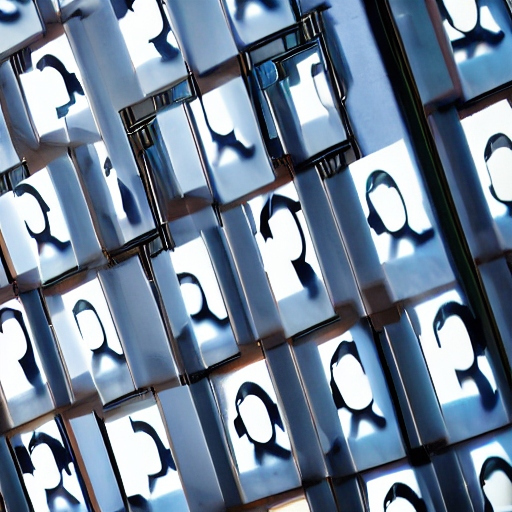Many people have expressed concern about how artificial intelligence may replace occupations in the future, yet it is already upheaving one sector where workers once appeared impervious to change: technology.
As Silicon Valley scrambles to catch up with the quick changes in the technology being produced in its own backyard, a small but rising number of tech organizations have recently cited AI as a justification for firing employees and rethinking new hiring.
Chegg, an education technology business, announced last month in a regulatory filing that it was laying off around 80 workers, or 4% of its workforce, to better position the company to carry out its AI plan and provide long-term, sustainable value for both investors and students.
Arvind Krishna, the CEO of IBM, stated in an interview in May that the company anticipates pausing hiring for positions that it believes AI will eventually replace. (In a later interview with Barrons, however, Krishna emphasized that he felt his earlier views were taken out of context and that “AI is going to create more jobs than it takes away.”)
Furthermore, the file-storage company Dropbox said in late April that it was laying off 500 employees, or 16% of its workforce, citing AI as one of the reasons.
Challenger, Grey & Christmas, an outplacement agency, reported 3,900 job losses in May that were attributable to AI in its most recent layoffs report, the first time it had done so. The company claims that all of the layoffs happened in the technology sector.
With these actions, Silicon Valley might not only be setting the pace for AI development but also providing a sneak peek at how businesses can use those technologies in the future. Rather than rendering entire skill sets useless overnight, as some may worry, the more immediate impact of a new crop of AI tools seems to be compelling businesses to move resources to better take advantage of the technology — and placing a premium on individuals with AI experience.
Over the last few months, AI has caught the world’s collective imagination, boosting the potential market for our next generation of AI-powered products faster than any of us could have predicted, Dropbox CEO Drew Houston wrote in a memo to employees announcing the job layoffs. Our next stage of expansion necessitates a distinct set of skill sets, notably in AI and early-stage product development.
According to Dan Wang, a professor at Columbia Business School, AI will lead organizations to restructure, but he does not anticipate machines replacing humans anytime soon.
According to Wang, AI does not inherently replace humans, but rather enhances their work. He believes that the type of competition that we should all be thinking about is that human specialists will be displaced by human specialists who can use AI technologies.
A tale of two Silicon Valleys
The AI-driven tech layoffs came amid larger sector cuts. More than three years into the pandemic, many tech companies are readjusting to an uncertain economic environment and dwindling levels of demand for digital services.
According to data maintained by Layoffs.fyi, 212,294 people in the tech industry have been put off in 2023 alone, surpassing the 164,709 reported in 2022.
However, in the shadow of those large layoffs, the tech industry has been gripped by an AI fervor and has invested substantially in AI talent and technology.
Just a few days after disclosing its intention to lay off 10,000 workers as part of broader cost-cutting efforts, Microsoft said in January that it was also investing a “multibillion dollar” sum in OpenAI, the business behind ChatGPT. The CEO of Meta also laid out plans for significant investments in AI in March, the same letter to staff that Mark Zuckerberg used to announce plans to fire another 10,000 employees (after eliminating 11,000 positions in November).
Even the once-uniquely in-demand software engineers in Silicon Valley now seem to be in danger of losing their jobs or losing out on wage increases to those with more AI competence.
In addition to running the website Layoffs.fyi, which tracks layoffs in the software sector, Roger Lee is the inventor of Comprehensive.io, which analyses job postings and compensation information from more than 3,000 tech businesses.
The average wage for a senior software engineer specialising in artificial intelligence or machine learning is 12% higher than for those who do not, according to a recent analysis of data from Comprehensive.io, which Lee refers to as “the AI premium.” While the average income for senior software engineers as a whole has remained steady, the average salary for a senior software engineer with a focus on AI or machine learning has climbed by about 4% since the beginning of the year.
With a base salary range of $276,300 to $373,800 for a Principal Machine Learning Engineer position, Lee cited Dropbox as an example of a company that offers noticeably high pay for AI employment. (In contrast, according to Comprehensive.io’s data, the average compensation for a senior software engineer is currently $171,895)
People who want to succeed in the tech sector and beyond can benefit from brushing up on their AI knowledge.
Wang, a professor at Columbia Business School, told that he started requiring his students to become familiar with the new generation of generative AI technologies available this past spring semester. According to Wang, receiving that kind of experience is essential for preparing students for success both during their undergraduate careers and afterward.
Wang clarified that employees should be able to use AI tools to increase their productivity rather than all needing to become experts in the field.
Wang noted that this is the area where the talent war is really changing, since talent differentiation comes from innovative and successful methods to incorporate AI into routine operations.













